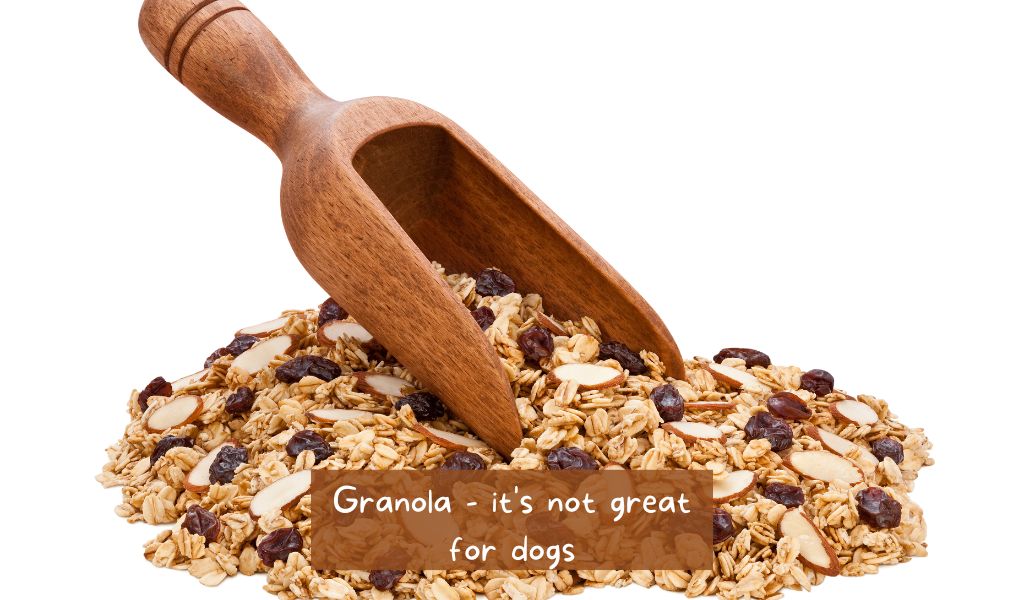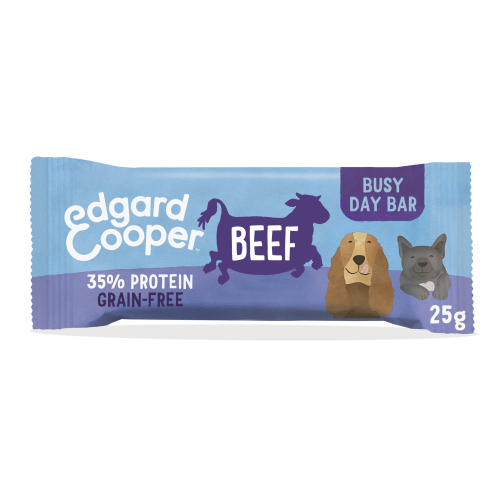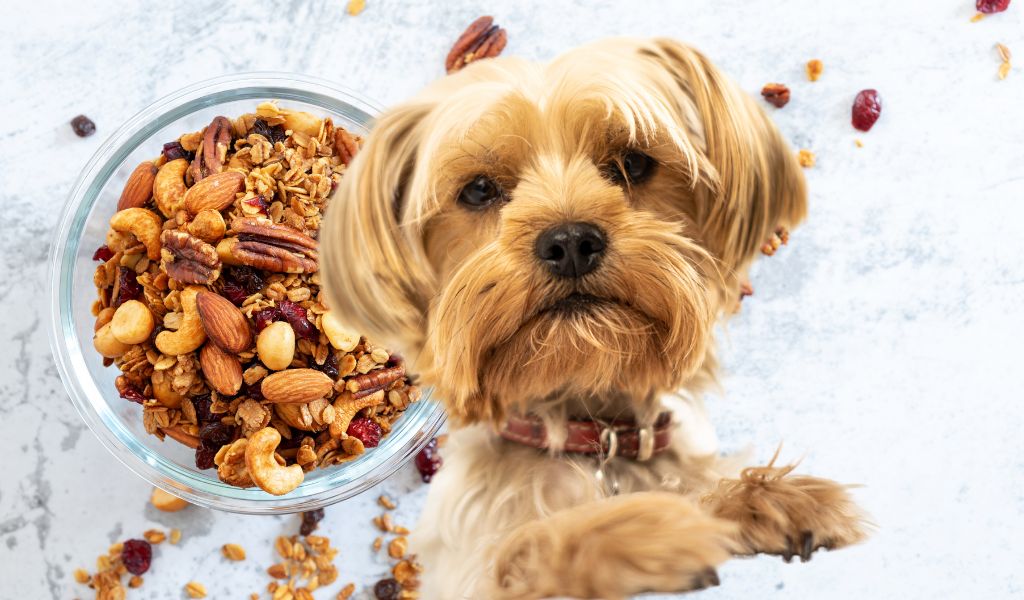It’s important to know what snacks are safe and appropriate for our four-legged friends.
Many things come to mind, including seemingly healthy breakfast cereals such as granola.
Unfortunately, granola can be toxic for dogs as it contains ingredients like raisins, currants and grapes that are potentially harmful to them. Moreover, the high sugar and fat content in granola can lead to health problems such as diabetes and obesity.
Can a dog have granola, and why it’s important to know
You should not feed granola to your dog, as the oats in it can be difficult for them to digest, while the nuts and seeds may cause gastrointestinal issues.
It’s also important to know that certain ingredients, such as chocolate chips or peanut butter, which are often found in granola can be extremely harmful to dogs.
Some types of granola can even contain xylitol – a sweetener that is toxic for dogs.

Health problems caused by high sugar and fat content in granola
Granola also contains high amounts of sugar and fat which can lead to health problems such as obesity, diabetes and pancreatic issues.
The excess sugar can also cause dental problems, such as tooth decay and bad breath.
Moreover, the fat content in granola may cause gastrointestinal issues, including diarrhea and vomiting.
At a glance ?
• Granola is not suitable for dogs as it contains ingredients that are toxic to them, such as raisins, currants and grapes.
• Granola also contains high amounts of sugar and fat which can lead to health problems.
• The oats in granola can be difficult for dogs to digest, while the nuts and seeds may cause gastrointestinal issues.
• If you want to treat your dog with a snack, choose options that are safe and appropriate for their specific needs and ask your vet if you have any doubts.
Digestion issues with oats from granola
Oats are a great source of nutrition for humans and provide a whole range of vitamins and minerals, but unfortunately, they can be a major cause of digestive issues in dogs.
Oats found in many commercially-made granolas can contain added sugar, salt and other sweeteners which are not suitable for canine diets.
Additionally, oats are quite high in fibre content and can cause dogs to experience bloating or diarrhea.
If you want to feed your dog granola as an occasional treat, it is best to opt for plain rolled oats or an unprocessed form without any additional ingredients.
You should also take caution when feeding your pup oats from cereal or granola bars as these typically have multiple added sweeteners that are not ideal for long-term health.
Nuts and seeds as potential gastrointestinal irritants
Nuts and seeds may be beneficial to humans in terms of protein, vitamins, and essential minerals, but for dogs they can potentially be a source of gastrointestinal upset.
They can be difficult for dogs to digest due to their high fat content and often contain caffeine or theobromine which can lead to increased bowel movements.
Many nuts can also damage teeth due to their hard shells or when chewed.
While there are some types of nuts and seeds that are safe enough for a dog’s diet when given in moderation, you should always consult a veterinarian when introducing anything new into their pup’s diet.
Granola can contain Xylitol which is toxic to dogs.
Safe alternatives for treating your dog with snacks
If you want to treat your dog with a snack, choose options that are safe and appropriate for their specific needs and always consult with your vet before giving any new food.
Good choices include plain cooked or raw vegetables (such as carrots), boiled chicken breast (no bones) or low-fat cottage cheese.
Other options could be plain yogurt mixed with fresh fruit, low-sodium canned tuna or boiled eggs.
All these can be given as occasional treats to help keep your pup healthy and happy.
Healthy treats for dogs









Final Words
In conclusion, it is not recommended to feed granola to your dog.
The high sugar and fat content can lead to health problems, the oats can be difficult for them to digest, and certain ingredients like chocolate chips or peanut butter are toxic for them.
It is best to opt for safe alternatives such as boiled chicken breast or low-fat cottage cheese.
Always consult your vet before introducing anything new into your pup’s diet and treat them with healthy snacks in moderation.




